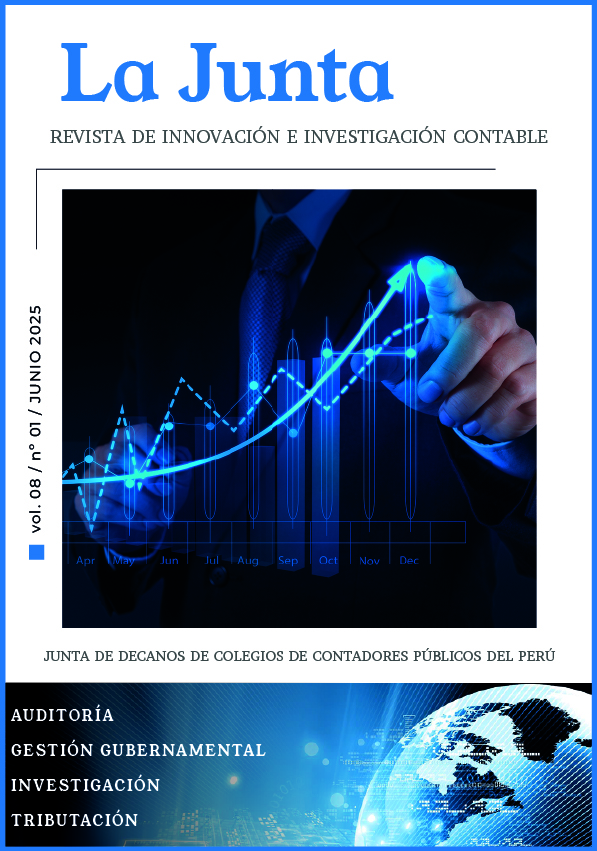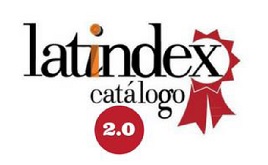Impact of electronic invoicing on tax compliance: empirical evidence in companies in metropolitan Lima during 2024
DOI:
https://doi.org/10.53641/gta9ty05Keywords:
electronic invoicing, tax compliance, compliance costs, issuing companies, tax collectionAbstract
The objective of this study was to analyze the effect of electronic invoicing on tax compliance among companies with tax domicile in Metropolitan Lima during the year 2024. A quantitative approach was used, based on a non-experimental applied design with a descriptive-correlational scope. The survey technique was applied to a sample of 413 public accountants belonging to companies under the General, MYPE Tax, and Special Income tax regimes. The findings indicated that electronic invoicing has a significant influence on tax compliance, accounting for 12% of its variation. It is concluded that there is a favorable effect on the reduction of internal and external costs for companies, as well as a moderate influence on the increase in monthly sales subject to VAT. This suggests that electronic invoicing favors improved administrative efficiency and tax compliance in the Lima business environment.
Downloads
References
Abdu, E., & Adem, M. (2023). Tax compliance behavior of taxpayers in Ethiopia: A review paper. Cogent Economics and Finance, 11(1).
Agostini, P. L., & Naggi, R. (2010). B2G electronic invoicing as enforced high impact service: Open issues. Information Systems: People, Organizations, Institutions, and Technologies - ItAIS: The Italian Association for Information Systems, 65–72.
Alshawi, E. J., Al-Tamimi, S. A., & Al Anssari, M. A. (2023). The Impact of Electronic Invoices Adoption and Tax Regulations’ Compliance on Tax Revenues in Iraq Mediating Impact of Tax Collection Efficiency. International Journal of Instructional Cases, 7(2).
Alshira’h, A. F., Alsqour, M., Lutfi, A., Alsyouf, A., & Alshirah, M. (2020). A socio-economic model of sales tax compliance. Economies, 8(4).
Banco Interamericano de Desarrollo & Centro Interamericano de Administraciones Tributarias. (2018). Factura electrónica en América Latina. Inter-American Development Bank.
Bani Ahmad, A. Y. A. (2024). E-invoicing and Cost Reduction: A Case Study of Multinational Corporations. Journal of Information Systems Engineering and Management, 9(2), 25009.
Bǎtrâncea, L.-M., Nichita, R.-A., Bǎtrâncea, I., & Moldovan, B. A. (2012). Tax compliance models: From economic to behavioral approaches. Transylvanian Review of Administrative Sciences, 36, 13–26.
Bellon, M., Dabla-Norris, E., & Khalid, S. (2023). Technology and tax compliance spillovers: Evidence from a VAT e-invoicing reform in Peru. Journal of Economic Behavior & Organization, 212, 756–777.
Bellon, M., Dabla-Norris, E., Khalid, S., & Lima, F. (2022). Digitalization to improve tax compliance: Evidence from VAT e-Invoicing in Peru. Journal of Public Economics, 210.
Bobek, D. D., Roberts, R. W., & Sweeney, J. T. (2007). The social norms of tax compliance: Evidence from Australia, Singapore, and the United States. Journal of Business Ethics, 74(1), 49–64.
Boll, K. (2014). Mapping tax compliance. Assemblages, distributed action and practices: A new way of doing tax research. Critical Perspectives on Accounting, 25(4–5), 293–303.
Dubin, J. A. (2012). The causes and consequences of income tax noncompliance. The Causes and Consequences of Income Tax Noncompliance, 9781441909077.
Edelmann, J., & Sintonen, S. (2006). Adoption of electronic invoicing in Finnish SMEs: two complementary perspectives. International Journal of Enterprise Network Management, 1(1), 79–98.
Foryszewski, S. (2008). Cutting out the paper chase. Sustainable Business, 139, 57.
Kirchler, E., Hoelzl, E., & Wahl, I. (2008). Enforced versus voluntary tax compliance: The “slippery slope” framework. Journal of Economic Psychology, 29(2), 210–225.
Köhne, K., Kosch, L., & Cuylen, A. (2015, mayo). Will XML-based electronic invoice standards succeed? - An explorative study [Conferencia] 23rd European Conference on Information.
Lamichhane, B. D., Lama, P. B., Pathak, B., & Chataut, M. K. (2024). Residential income tax compliance in Nepal: An empirical analysis. Investment Management and Financial Innovations, 21(4), 170–187.
Matus, A., Guerra, E., Fuertes, W., Gómez, M., Aules, H., Villacís, C., & Toulkeridis, T. (2017). On the development of an electronic invoicing solution to integrate SMEs with a tax-collection egovernment-platform. 4th International Conference on EDemocracy and EGovernment, ICEDEG 2017, 94–101.
Mitu, N. E. (2020). Voluntary Tax Compliances as a Form of Social Responsibility: Factors of Influences. En CSR, Sustainability, Ethics and Governance (pp. 223–242).
Muehlbacher, S., & Kirchler, E. (2010). Tax compliance by trust and power of authorities. International Economic Journal, 24(4), 607–610.
Nie, R., Wu, H., Ma, L., Liu, Z., Wang, Z., & Zhang, P. (2024). Towards a Conversational Invoice Issuance LLM-Based Agent. 2024 7th International Conference on Algorithms, Computing and Artificial Intelligence (ACAI), 1–5.
Palil, M. R., & Mustapha, A. F. (2011). Determinants of tax compliance in Asia: A case of Malaysia. European Journal of Social Sciences, 24(1), 7–32.
Ramírez-Álvarez, J., Oliva, N., & Andino, M. (2022). Tax compliance and electronic invoicing in Ecuador: An impact assessment. Problemas Del Desarrollo, 53(208), 97–123.
Rocha, M. (2022). Policy Forum: How Canada Could Benefit from E-Invoicing for GST/HST Purposes. Canadian Tax Journal, 70(2), 361–373.
Sandberg, K. W., Wahlberg, O., & Pan, Y. (2009). LNAI 5639 - Acceptance of E-Invoicing in SMEs. LNAI (5639).
Španić, D., Ristić, D., & Vrdoljak, B. (2011). An electronic invoicing system. Proceedings of the 11th International Conference on Telecommunications ConTEL 2011, 149–156.
Yuesti, A., Sudja, I. N., Wahyuningsih, T., & Mennes, C. C. (2019). Correlation of tax behavior with tax compliance. International Journal of Innovation, Creativity and Change, 9(5), 285–303.
Downloads
Published
Issue
Section
License
Copyright (c) 2025 Jorge Luis De Velazco Borda

This work is licensed under a Creative Commons Attribution 4.0 International License.









